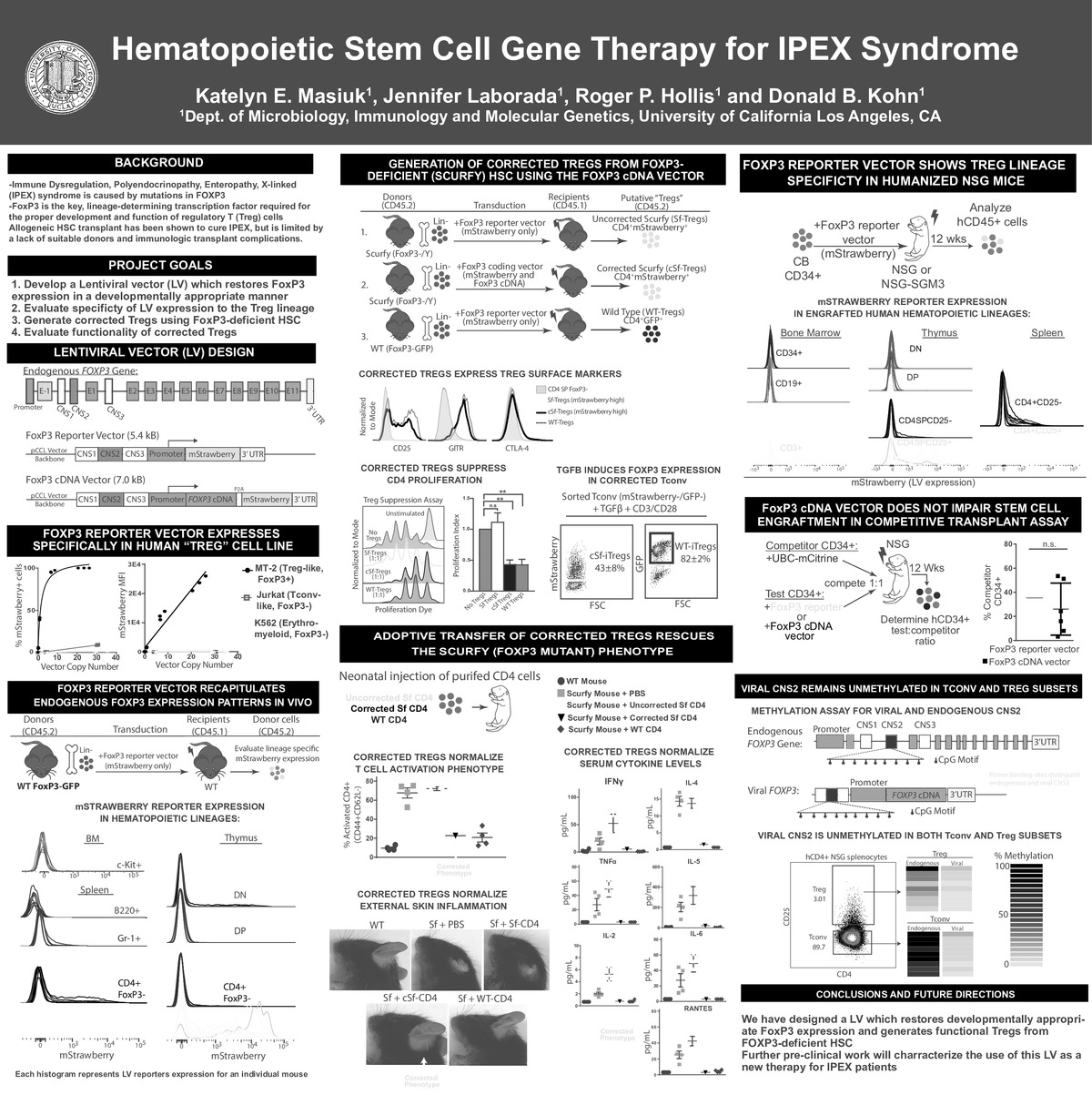-
Author
Katelyn Masiuk -
Co-author
Katelyn E. Masiuk, Jennifer Laborada, Maria Grazia Roncarolo, Roger P. Hollis, Donald B. Kohn
-
Title
Hematopoietic Stem Cell Gene Therapy for IPEX Syndrome
-
Abstract
Lentiviral vector (LV)-based hematopoietic stem and progenitor cell (HSPC) gene therapy has recently demonstrated remarkable success, with a number of phase I and II trials reporting safe and efficacious correction of genetic blood cell disorders. One excellent candidate disease for HSPC gene therapy is immune dysregulation polyendocrinopathy enteropathy X-linked (IPEX) syndrome. IPEX is a devastating autoimmune disease caused by mutations in the gene encoding FoxP3, a transcription factor required for the proper development and function of regulatory T (Treg) cells. Treg cells are critical for providing dominant suppression of autoreactive conventional T (Tconv) cells; thus, their absence causes severe and often fatal multi-organ autoimmunity. Allogeneic HSPC transplantation can be curative for IPEX patients but is limited due to a lack of suitable donors and immunologic transplant complications. As an alternative strategy, we have explored LV modification of HSCs to restore physiologic FoxP3 expression, which could ideally provide IPEX patients with a life-long source of Treg cells that develop under physio-logic conditions in the thymus and periphery. Here, we describe the development of a LV regulated by human FOXP3 genetic elements that recapitulates physiologic FoxP3 expression. In contrast to an ectopic expression strategy, this lineage-specific vector shows an expression pattern highly selective for the Treg cell lineage and shows no impairment of HSPC function. LV modification of scurfy (a FoxP3mut mouse model of IPEX) HSPC generates FoxP3+ Treg cells within vivo suppressive capacity capable of curing the autoimmune scurfy phenotype. Additionally, humanized mouse models engrafted with LV-modified human HSPC from healthy donors show high levels of Treg-cell-selective LV expression, suggesting that this approach may be similarly efficacious in human IPEX patients. These findings demonstrate preclinical efficacy for the treatment of IPEX patients by autologous HSC transplant and may provide valuable insights into new cell therapies for autoimmunity.
-
College
AMC
-
Zoom
-
PDF

